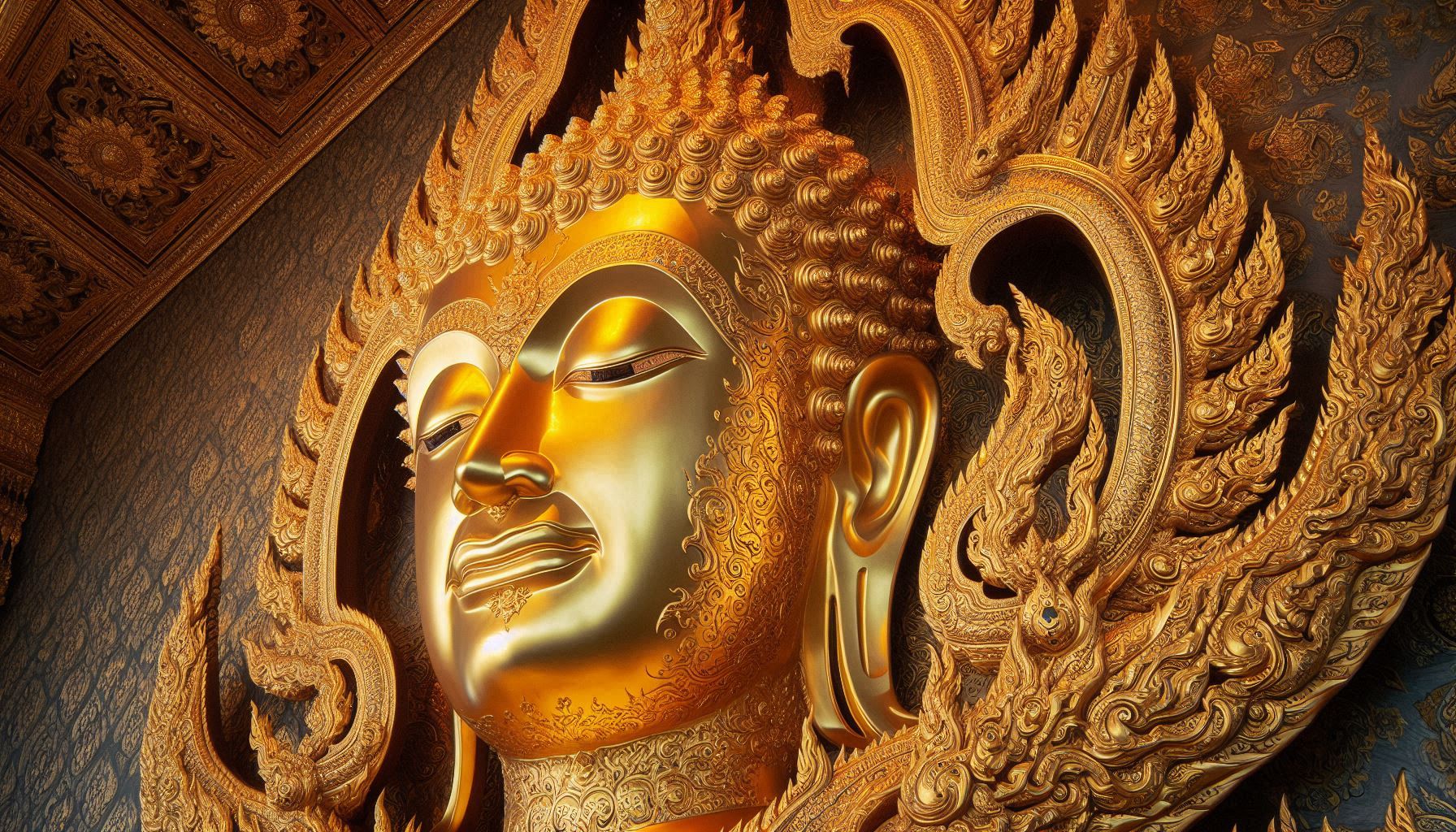Thai Buddhism: A Spiritual Journey Through the Land of Smiles
Thailand, often referred to as the “Land of Smiles,” is steeped in rich cultural heritage, a significant part of which is its deep-rooted Buddhist traditions. Theravada Buddhism, the predominant form of Buddhism practiced in Thailand, has profoundly influenced the country’s way of life, shaping its art, literature, and social values. This article delves into the history, core beliefs, practices, and rituals of Thai Buddhism, offering insights into the spiritual fabric of this Southeast Asian nation.
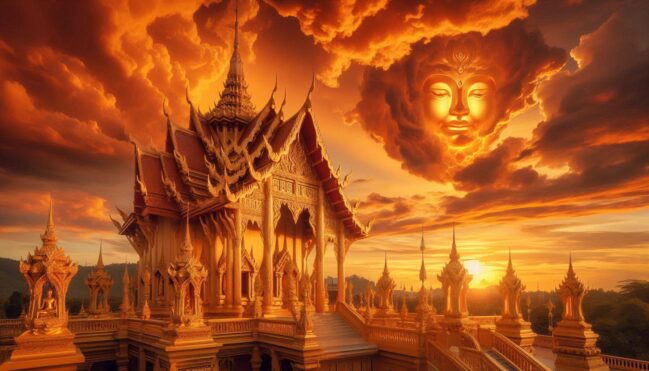
A Brief History
Theravada Buddhism traces its origins back to ancient India, where it was founded by the Buddha, a spiritual teacher who lived approximately 2,500 years ago. The religion spread throughout Southeast Asia, including Thailand, where it gained a strong foothold and became an integral part of the Thai identity.
Over centuries, Thai Buddhism evolved, incorporating elements of local cultures and traditions. The influence of the Khmer Empire, which once ruled much of Southeast Asia, is evident in some aspects of Thai Buddhist architecture and rituals. The establishment of the Sukhothai Kingdom, often considered the golden age of Thai civilization, marked a significant period for the development of Thai Buddhism.

Core Beliefs and Teachings
The core beliefs of Theravada Buddhism are based on the Four Noble Truths, which outline the nature of suffering, its cause, its cessation, and the path leading to its cessation. These truths form the foundation of the Buddhist path to enlightenment.
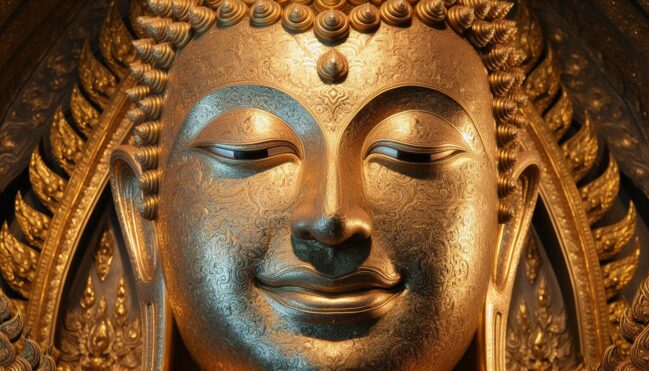
Other key concepts in Theravada Buddhism include:
Karma: The law of cause and effect, which determines an individual’s future based on their past actions.
Samsara: The cycle of birth, death, and rebirth, which is believed to be driven by karma.
Nirvana: The ultimate goal of Buddhist practice, which is the cessation of suffering and the attainment of enlightenment.
Practices and Rituals
Thai Buddhist practices are centered around the teachings of the Buddha and the cultivation of mindfulness. Meditation, particularly mindfulness meditation, is a central aspect of Buddhist practice. It involves paying attention to the present moment without judgment, leading to greater awareness and inner peace.
Almsgiving: The act of giving to those in need, which is considered a meritorious deed.
Observance of Buddhist festivals: Participation in festivals such as Vesak (Buddha’s Birthday) and Loy Krathong (Festival of Lights) is a way to honor the Buddha and connect with the Buddhist community.
Worship of Buddha images: Buddha images are revered as symbols of the Buddha and are often adorned with offerings such as flowers, incense, and candles.
The Role of Temples
Temples, or wats, play a crucial role in Thai society. They serve as places of worship, education, and community gatherings. Many temples are adorned with intricate carvings, murals, and golden stupas, reflecting the rich artistic heritage of Thailand.
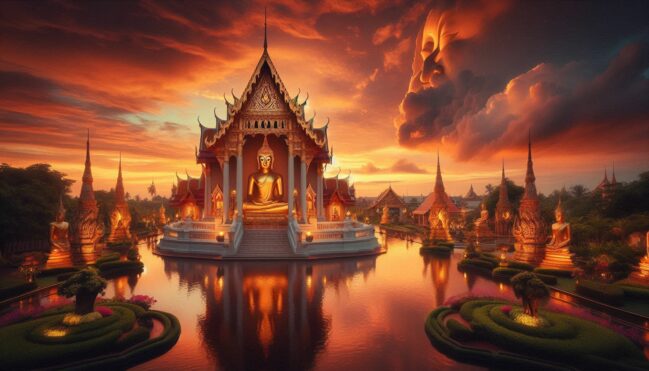
The Influence of Buddhism on Thai Culture
Buddhism has had a profound influence on Thai culture, shaping its art, literature, music, and social values. Thai literature is rich in Buddhist themes and stories, while Thai art often depicts Buddhist scenes and figures. The concept of sanuk, which translates to “fun” or “enjoyment,” is deeply rooted in Buddhist philosophy and emphasizes the importance of finding joy in the present moment.
Challenges and the Future of Thai Buddhism
In recent years, Thai Buddhism has faced challenges such as the influence of Western culture, the increasing number of conversions to other religions, and the rise of secularism. However, Buddhism remains a vital part of Thai identity, and many people continue to practice it with devotion.
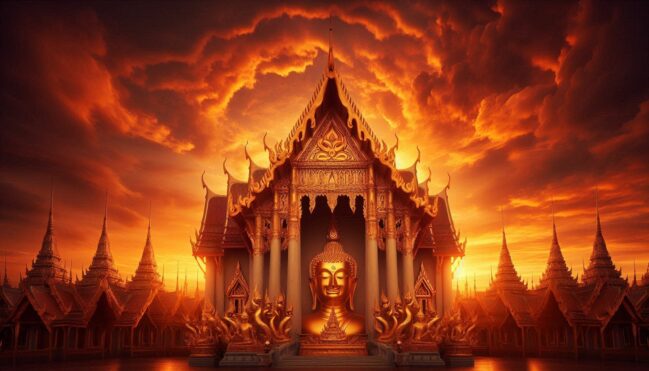
As Thailand continues to evolve, it is likely that Buddhism will adapt to new challenges and opportunities. The resilience of this ancient religion, coupled with its enduring appeal, suggests that it will continue to play a significant role in the lives of the Thai people for generations to come.
Links;DharmaThai portal
